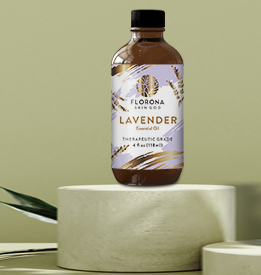Curiosity about crafting your very own soap is on the rise, and I’m here to help you navigate the fragrant world of essential oils. It’s not just about concocting a cleaning bar; it’s about the experience, the aroma, and the many perks that come with it.
What exactly are essential oils? They are potent plant extracts that retain the natural smell and flavor, or ‘essence’, of their source. These oils have been harnessed for centuries, not only for their delightful scents but also for their medicinal and therapeutic properties.
From the ancient Babylonians who used aromatic resins for their bathing rituals to the Egyptians who crafted perfumed balms, essential oils have always been a cornerstone in creating personal care products that cleanse, soothe, and delight the senses.
Don’t worry too much about figuring it all out right from the get-go. I’m here to guide you through choosing the ideal essential oils to elevate your soap-making game to aromatic excellence.
Top Essential Oils for Soap Making: Finding Your Signature Scent
When you’re diving into the world of soap making, the choice of essential oils can be overwhelming, but so exhilarating. It’s not just about picking any scent; it’s about finding the right notes that resonate with you and your future soap users. You’ll want to look for oils that retain their fragrance post-saponification, the chemical process that transforms oils into soap.
Let’s talk specifics. Lavender is a universal favorite, known for its soothing and floral scent. It’s a safe bet for your first batch. On the other hand, citrus oils like lemon and orange provide that bright, uplifting zestiness to kickstart the day. For those looking for a more earthy base, patchouli or cedarwood add depth and grounding notes.
Blending essential oils can be a form of art. Imagine concocting your own scent that can’t be found on store shelves. Start with the basics: a note from each category – top, middle, and base. Top notes provide the initial burst of scent, middle notes form the heart of the blend, and base notes give a lasting impression.
Remember, not all scents stick around after the soap cures. Citrus can be fleeting, so it may need to be anchored with a middle or base note. When testing blends, small batch trials are your best friend. This isn’t just a cautious approach to not waste materials, but also an opportunity to perfect your scent profile.
The Aromatic Benefits: What Scents Are Best for You
So you’re curious about the different effects that scents offer? I’m going to help you understand how the right aroma can do much more than just smell good. Scents in essential oils aren’t just about personal taste; they can also have profound psychological and therapeutic effects. For instance, lavender is renowned for its calming properties, while citrus scents like lemon or grapefruit can invigorate and uplift.
Choosing scents is also about considering what’s best for different skin types. If you have sensitive skin, chamomile or rose might be your go-to aromas, as they’re gentle and soothing. For oilier skin, I’d point you toward peppermint or tea tree oil, which are known to have purifying and balancing qualities.
What’s more, seasons and trends play a role in scent preferences. In my opinion, during the winter months, you might want warmer, spicier scents such as cinnamon or clove. Come summer, lighter, fresher scents like eucalyptus or bergamot could be more appealing.
Don’t worry too much about following the trends, though. Choose something that resonates with you. That being said, safety is paramount. Be mindful of the fact that while natural, essential oils are potent and can cause reactions in some people. This is crucial if you’re crafting soaps for a broad audience – always err on the side of caution and include clear information about the oils used.
Enhancing Your Soap with Essential Oils: Beyond the Scent
In my experience, adding essential oils to soap doesn’t just elevate the fragrance; it also boosts the soap’s innate properties. Essential oils bring a host of benefits to soaps. For example, some oils have strong antibacterial properties, which can make your soap more effective at cleansing.
You might not know this, but essential oils like tea tree oil are renowned for their anti-inflammatory benefits, helping to soothe skin conditions and relieve irritation. Alongside scent, I want to point out that essential oils can significantly enhance the moisturizing qualities of your soap, leaving the skin feeling soft and nourished after every wash.
Incorporating essential oils isn’t just about adding a nice aroma; it’s about enriching the soap with attributes that can contribute to skin health and overall well-being. When you mix these oils into your soap recipes, you also bring in vitamins and antioxidants that are beneficial for the skin. This isn’t just about a superficial benefit—it’s a deep, skin-loving boost.
Now, if you’re planning to sell your soaps, it’s essential to include accurate labeling. Consumers appreciate knowing what’s in their products, especially when it comes to skin sensitivities and ethical sourcing. I strongly encourage you to be as transparent as possible about the essential oils used, and their origin, to build trust and credibility with your customers.
Remember, you’re not just crafting soap; you’re creating an experience. The essential oils you choose can transform a simple daily routine into a luxurious, therapeutic ritual. That’s the magic of using nature’s extracts in soap making.
© 2024, Tes. All rights reserved.
